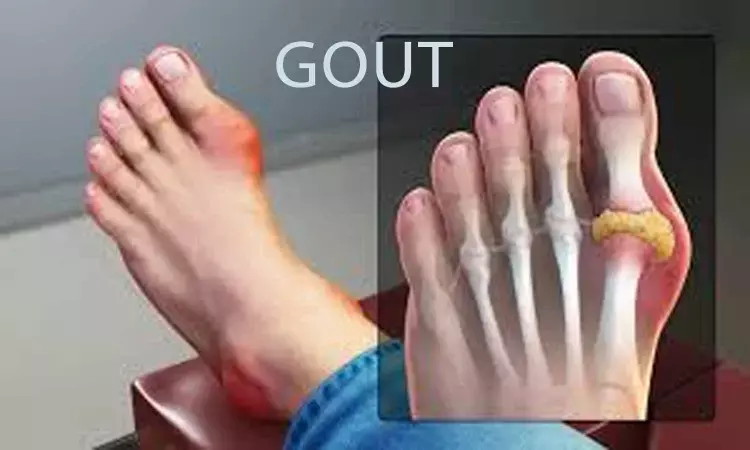- Home
- Medical news & Guidelines
- Anesthesiology
- Cardiology and CTVS
- Critical Care
- Dentistry
- Dermatology
- Diabetes and Endocrinology
- ENT
- Gastroenterology
- Medicine
- Nephrology
- Neurology
- Obstretics-Gynaecology
- Oncology
- Ophthalmology
- Orthopaedics
- Pediatrics-Neonatology
- Psychiatry
- Pulmonology
- Radiology
- Surgery
- Urology
- Laboratory Medicine
- Diet
- Nursing
- Paramedical
- Physiotherapy
- Health news
- Fact Check
- Bone Health Fact Check
- Brain Health Fact Check
- Cancer Related Fact Check
- Child Care Fact Check
- Dental and oral health fact check
- Diabetes and metabolic health fact check
- Diet and Nutrition Fact Check
- Eye and ENT Care Fact Check
- Fitness fact check
- Gut health fact check
- Heart health fact check
- Kidney health fact check
- Medical education fact check
- Men's health fact check
- Respiratory fact check
- Skin and hair care fact check
- Vaccine and Immunization fact check
- Women's health fact check
- AYUSH
- State News
- Andaman and Nicobar Islands
- Andhra Pradesh
- Arunachal Pradesh
- Assam
- Bihar
- Chandigarh
- Chattisgarh
- Dadra and Nagar Haveli
- Daman and Diu
- Delhi
- Goa
- Gujarat
- Haryana
- Himachal Pradesh
- Jammu & Kashmir
- Jharkhand
- Karnataka
- Kerala
- Ladakh
- Lakshadweep
- Madhya Pradesh
- Maharashtra
- Manipur
- Meghalaya
- Mizoram
- Nagaland
- Odisha
- Puducherry
- Punjab
- Rajasthan
- Sikkim
- Tamil Nadu
- Telangana
- Tripura
- Uttar Pradesh
- Uttrakhand
- West Bengal
- Medical Education
- Industry
Allopurinol non-inferior to febuxostat for gout treatment: Study

USA: Allopurinol, when dosed appropriately as part of a treat-to-target strategy, is non-inferior to febuxostat for gout treatment, according to results from a large, randomized double-blind trial. Further, both the urate-lowering therapies (ULTs) were highly effective as 80% of patients achieved and maintained serum urate (SU) goals after 1 year and more than 90% achieved SU < 6.8 mg/dl.
The study findings were presented at the ACR (American College of Rheumatology) Convergence 2021.
Urate lowering therapy is a key treatment for gout management. However, there is a lack of data about the relative safety and efficacy of the two major oral ULTs (febuxostat and allopurinol) when administered as part of a treat-to-target approach as recommended by ACR and EULAR. There is a need for evidence regarding the comparative safety and efficacy in the context of chronic kidney disease (CKD), a common comorbid condition among gout patients.
For this purpose, James O'Dell, University of Nebraska Medical Center, Omaha, NE, and colleagues designed a multicenter, randomized, double-blind, non-inferiority trial to examine the comparative efficacy and safety of these ULTs in gout management.
The study included patients with gout and a serum urate (SU) concentration ≥ 6.8 mg/dl. They were randomized in the ratio of 1:1 to receive appropriately titrated allopurinol or febuxostat in this non-inferiority 72-week trial. Patients with persistent hyperuricemia, despite treatment with allopurinol (≤ 300 mg/dl), were eligible and the protocol specified that ≥ 1/3 would have CKD stage 3. The trial had 3 phases: 1) ULT titration (weeks 0-24), 2) Maintenance (weeks 25-48), and 3) Observation, with continued stable ULT (weeks 49-72). Allopurinol and febuxostat were initiated in daily doses of 100 mg and 40 mg with maximum titration to 800 mg and 120 mg (reduced to 80 mg in 2019 per FDA's request), respectively. According to 2012 ACR guidelines, patients received anti-inflammatory prophylaxis hosen by the site investigator until the beginning of phase 3.
The primary endpoint was the proportion of patients experiencing ≥ 1 flare during phase 3 with a pre-specified margin of < 8% difference indicative of non-inferiority. Secondary endpoints included: efficacy/tolerability in CKD stage 3, the proportion achieving SU < 6 mg/dl at the end of phase 2, and serious adverse events (SAE).
Key findings include:
- Characteristics of the 940 patients with gout (n=21 sites) receiving at least 1 dose of study medication.
- Overall, 20% withdrew prior to completion with similar proportions by treatment arm.
- During phase 3, 35% of patients treated with allopurinol had ≥ 1 flare compared to 42% of participants treated with febuxostat.
- 80% of patients achieved SU < 6.0 mg/dl (92% achieved SU < 6.8 mg/dl) during phase 2 with no difference according to ULT treatment.
- There were no treatment differences in SAEs (including percent of patients with cardiovascular events) in those with or without CKD.
"There was no evidence of increased cardiovascular toxicity with febuxostat compared to allopurinol," the researchers wrote. "Moreover, the comparative efficacy and safety of these two agents extended to patients with CKD stage 3, highly relevant as nearly one in every two gout patients suffers from renal insufficiency."
Reference:
O'Dell J, Neogi T, Pillinger M, Palevsky P, Newcomb J, Brophy M, Wu H, Davis-Karim A, Ferguson R, Pittman D, Terkeltaub R, Cannella A, England B, Helget L, Mikuls T, Taylor T. Urate Lowering Therapy in the Treatment of Gout: A Multicenter, Randomized, Double-blind Comparison of Allopurinol and Febuxostat Using a Treat-to-Target Strategy [abstract]. Arthritis Rheumatol. 2021; 73 (suppl 10). https://acrabstracts.org/abstract/urate-lowering-therapy-in-the-treatment-of-gout-a-multicenter-randomized-double-blind-comparison-of-allopurinol-and-febuxostat-using-a-treat-to-target-strategy/. Accessed November 16, 2021.
Dr Kamal Kant Kohli-MBBS, DTCD- a chest specialist with more than 30 years of practice and a flair for writing clinical articles, Dr Kamal Kant Kohli joined Medical Dialogues as a Chief Editor of Medical News. Besides writing articles, as an editor, he proofreads and verifies all the medical content published on Medical Dialogues including those coming from journals, studies,medical conferences,guidelines etc. Email: drkohli@medicaldialogues.in. Contact no. 011-43720751


